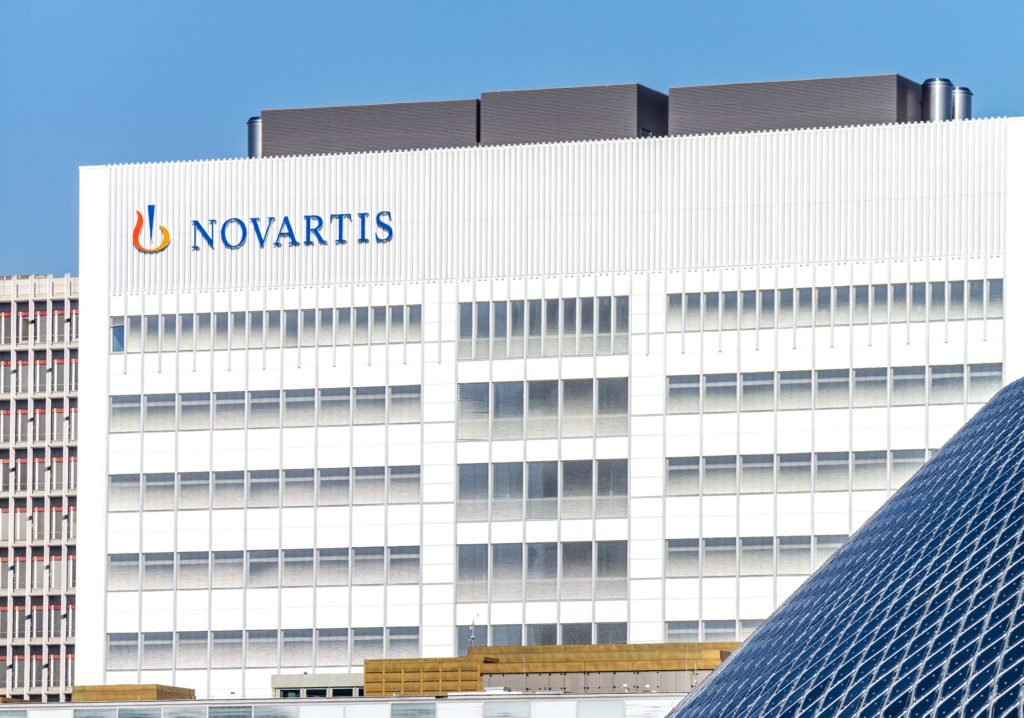Novartis’ Tafinlar and Mekinist received FDA approval for the treatment of unresectable or metastatic solid tumors with the BRAF V600E mutation.
On Thursday, Tafinlar® (dabrafenib) and Mekinist® (trametinib) received accelerated approval by the US Food and Drug Administration (FDA) for the treatment of adult and pediatric patients with unresectable or metastatic solid tumors who carry the BRAF V600E mutation. This targeted therapy is indicated for patients whose cancer has advanced after prior treatments and have no other available effective options. This newly approved Novartis combination therapy is the first and only of its kind that can be prescribed to treat people with BRAF-positive solid tumors, regardless of tumor type.
Mechanism of Action of Tafinlar and Mekinist
Tafinlar in combination with Mekinist is also indicated to treat melanoma, metastatic non-small cell lung cancer and metastatic non-small cell lung cancer in patients with BRAF mutations. The latest approval extends the potential benefits of this combination to treat patients with any type of solid tumor, expanding upon its previous indications. Tafinlar + Mekinist is also the first of its kind approved for use in pediatric patients.
The BRAF gene regulates cell growth, proliferation and apoptosis. Mutations in this gene can contribute to the growth of different cancer cells, and many patients with cancer carry BRAF mutations. Therefore, therapies that target BRAF can be more effective in treating cancer for those with BRAF-positive tumors.
Both Tafinlar and Mekinist target the RAS/RAF/MEK/ERK pathway, which regulates cell growth and survival; however, each affects different kinases. Tafinlar is a tyrosine kinase inhibitor that works by inhibiting some forms of BRAF kinases and prevents growth of BRAF-positive tumors. Mekinist is a reversible MEK1 inhibitor that blocks cellular proliferation and has also been shown to block growth of BRAF-positive tumors. Together, the Tafinlar and Mekinist combination provides greater and prolonged inhibition of BRAF-positive tumor cells than each therapy alone.
XTALKS WEBINAR: Effective Oncology Clinical Site Relationships: A Solid Case
Live and On-Demand: Wednesday, August 3, 2022, at 1pm EDT (10am PDT)
Register for this free webinar to learn strategies to expedite suitable site identification using hard data sets. Attendees will learn how to optimize site engagement to attain maximum effectiveness for quality, timely data entry and query resolution. The featured speaker will discuss best practices to meet and surpass enrollment targets.
Potential Benefits of Targeted Combination Therapy
Combination therapies are often used to treat challenging cancers. A combination vs monotherapy can improve outcomes through synergic physiological effects achieved by their different mechanisms of action. In addition, combination therapies may reduce the potential development of additional mutations that make cancer more difficult to treat and could help reduce the risk of drug resistance.
Tafinlar/Mekinist are considered targeted cancer therapies, meaning that they can be used to treat cancer types with a certain molecular signature. These types of treatments represent the goal of precision medicine, where therapies are tailored to specific patient types.
As with other targeted therapies, oncologists should test their patients for BRAF mutations prior to selecting a therapy. If a patient’s tumor is BRAF-positive, using a targeted therapy like Tafinlar + Mekinist could provide potentially more effective results.
Tafinlar and Mekinist Combination Clinical Trial Results
The safety and efficacy of the Tafinlar and Mekinist combination therapy was evaluated in three clinical trials. Results from the Phase II ROAR (Rare Oncology Agnostic Research) basket and the NCI-MATCH Subprotocol H studies demonstrated an overall response rate of up to 80 percent in patients with BRAF-positive solids tumors regardless of type. Tafinlar + Mekinist was shown to be effective in patients with glioma, biliary tract cancer and certain types of gynecological and gastrointestinal cancers. A third study also found the combination to be effective in pediatric patients. The safety profile of Tafinlar + Mekinist in these trials was consistent with data from its previous clinical trials.
“Tackling cancer is complex, which is why it is so important that we continue to follow the science as we pursue meaningful advances and new approaches to treating cancer,” said Reshema Kemps-Polanco, Head, Novartis Oncology US in the press release.
Additional Compounds of Interest
Since Tafinlar + Mekinist was approved under the Accelerated Approval Program, Novartis may need to conduct confirmatory trials to verify these results.
Novartis is also investigating several other medications for tumors and solid tumors, many of which are in Phase III trials. These compounds target several types of solid tumors, such as gastroenteropancreatic neuroendocrine tumors, glioblastoma, metastatic hormone sensitive prostate cancer, ovarian cancer and triple negative breast cancer.












Join or login to leave a comment
JOIN LOGIN